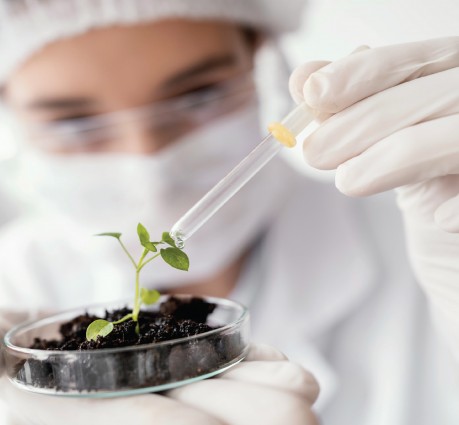The M.Sc. Programme is an UGC-approved, 2-year, full-time postgraduate programme. This M.Sc. programme at Rabindranath Tagore University aims to offer significant flexibility and diversity for students. This programme allows students to study one or more Plant Protection areas of their interest. The Plant Pathology degree is mostly comprised of research and the publication of your findings in an international journal. Your master's degree will usually get you a better job with a higher income, more opportunities for growth, more responsibility, and increased reliance. The Master of Science programme in Plant Pathology lasts two years, following which applicants have numerous further choices in organisations, including research studies.
Duration of programme
Level of Study

It encompasses fundamental biology as well as applied agricultural sciences.
Studying plant-pathogen interactions for agri-practice.
Microbe-plant interactions inform disease control innovation.
Diverse pathogens lead to biotic diseases.
PEO4: Environmental, agricultural, and patent law firms- Students will be ready for employment in functional areas like environmental, agricultural, and patent law firms.
B.Sc. in relevant field (agriculture, horticulture, forestry, or Biology)
Any other relevant equivalent degree,50% minimum a...